Related Research Articles
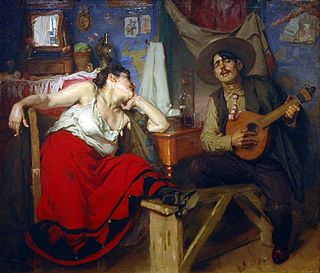
Fado is a music genre which can be traced to the 1820s in Lisbon, Portugal, but probably has much earlier origins. Fado historian and scholar Rui Vieira Nery states that "the only reliable information on the history of fado was orally transmitted and goes back to the 1820s and 1830s at best. But even that information was frequently modified within the generational transmission process that made it reach us today."

Portuguese music includes many different styles and genres, as a result of its history. These can be broadly divided into classical music, traditional/folk music and popular music and all of them have produced internationally successful acts, with the country seeing a recent expansion in musical styles, especially in popular music.

Carlos Manuel Moutinho Paiva dos Santos Duarte, known professionally as Camané, is a Portuguese fado singer.

Carlos Manuel de Ascenção do Carmo de Almeida, better known as Carlos do Carmo, was a Portuguese fado singer.

Carlos Bica is a Portuguese jazz bassist.
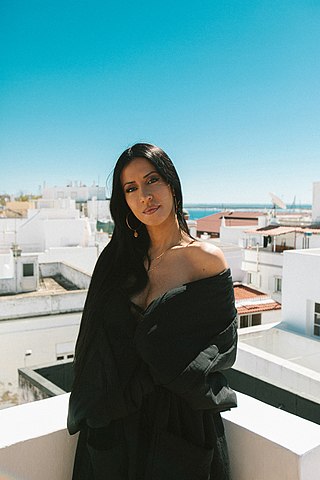
Ana Cláudia Moura Pereira, known as Ana Moura, is a Portuguese fado singer. An internationally recognized singer, she was the youngest fadista to be nominated for a Dutch Edison Award.

Katia Guerreiro is a South African-born Portuguese fado singer, who has released eight albums and has received several awards, including Order of Arts and Letters, Chevalier rank, from the French government and the Order of Prince Henry from the President of Portugal.

Paulo de Carvalho is a Portuguese singer.

Fernando Travassos Tordo is a Portuguese singer and songwriter. Since 2003, he has been a Commander of the Order of Merit, an honor bestowed on him by the Portuguese President Jorge Sampaio.
Armando Artur da Silva Machado was a Portuguese fadista, guitarist and "viola" player, meaning the viola caipira guitar. He performed with his wife Maria de Lourdes Machado, a nurse who became an accomplished Fado singer. In 1937 he opened the Adega Machado in Lisbon's Bairro Alto, which was the second fado bar in the bairro, but the first to give daily performances.
Joaquim Viana Pimentel was a Portuguese Fado singer, who made his career as "ambassador" of the fado in Brazil, where he became popular and was called "the prince of Portuguese song."

Alma is the second album released by Portuguese fado singer Carminho. It was released on 2 March 2012. The album features three classical fados, from the repertoires of Amália Rodrigues, Maria Amélia Proença and Fernanda Maria, three originals, including Bom Dia, Amor, from a letter by Fernando Pessoa, and two versions of traditional fados, with new lyrics, including Folha, written by Carminho herself. The album includes two versions of songs of great names of the Brazilian Popular Music, Meu Namorado, by Chico Buarque, and Saudades do Brasil em Portugal, by Vinicius de Moraes.
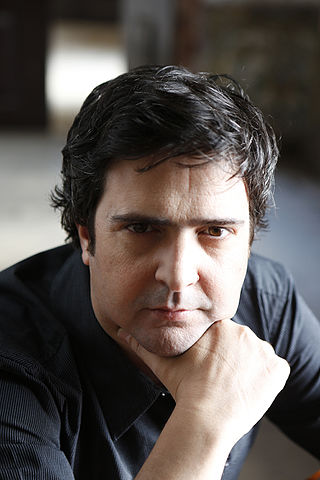
Hélder António Moutinho Paiva dos Santos, artistically known as Helder Moutinho is a Portuguese singer and songwriter, and one of the most distinguished artists in the Fado genre. He's also the brother of two renowned Fado singers, Camané and Pedro Moutinho.

José Mário Branco was a Portuguese singer-songwriter, actor, and record producer.

Mariza is the sixth studio album by fado singer Mariza. It was released in 2015 by Warner Music Portugal. The album peaked at No. 1 on the Associação Fonográfica Portuguesa chart and was certified as a double platinum album. It also reached No. 13 on US World chart. The album received a Latin Grammy nomination for Best Portuguese Language Contemporary Pop Album in 2016.
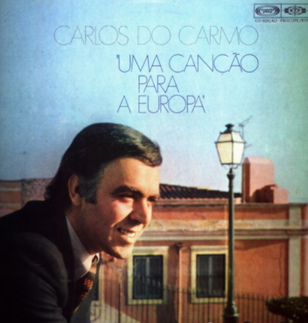
Uma Canção para a Europa is an album by fado singer Carlos do Carmo. It was released in 1976 on the Movieplay label. The album included the single "Uma flor de verde pinho" which was entered in Eurovision Song Contest 1976.
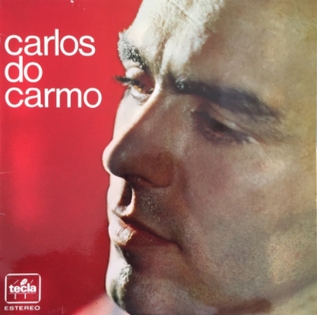
Carlos do Carmo is an album by fado singer Carlos do Carmo. It was released in 1970 on the Tecla label. It was later re-released by Universal Music Portugal.

Lucília Nunes de Ascensão do Carmo was a Portuguese fadista and the mother of Carlos do Carmo.